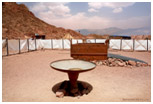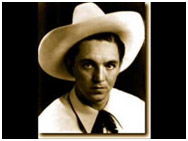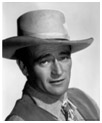Cleansed!
I was blessed to have a number of talented, dedicated Sabbath School teachers while growing up. Of them all, one woman was by far the best and was the favorite of all the kids. A skilled public speaker and a committed Christian, she understood the power of a good visual aid. From a pirate’s treasure chest filled with a trove of worldly “allurements” to her best crystal vase filled with beautiful flowers, rotten food and dog poop to illustrate secret sin hiding within a "beautiful Christian," her visual aids captured our attention while teaching profound spiritual truths in ways our young minds could grasp.
The ability of a good visual aid to illustrate hard-to-understand concepts cannot be overestimated. Yahuwah Himself used a very elaborate visual aid for teaching one of the hardest to understand concepts in the plan of redemption: the cleansing of the soul itself.
The divine plan to meet the emergency of sin, the plan of redemption, was no simple, haphazard action put into place at the last minute. It was a part of those things which had been kept in silence from time immemorial and which would have forever remained hidden, had Adam and Eve not sinned.
The plan of salvation embraced much more than forgiveness of sins. It involved more than being able to give repentant sinners eternal life. The ultimate goal in the plan of redemption was to restore in man the very image of Yahuwah: to recreate the human mind so that it would no longer be like Satan’s mind but would henceforth be one with the divine mind.
Spiritual things are spiritually discerned. The ability to grasp deep sacred truths was lost at the fall when mankind took on the nature of Satan. In order to teach sin-darkened minds the truths of the plan of salvation, the Creator designed a visual aid: the most beautiful, complex, multi-textured visual aid ever created. Yahuwah gave us the sanctuary.
The sanctuary used symbols to explain the principles involved in the salvation, the salvaging, of the human race. Because “the wages of sin is death” (Romans 6:23) and “without the shedding of blood there is no remission” of sin (Hebrews 9:22), death was required to meet the demands of the broken divine law. This was symbolized in the sanctuary service by the animal sacrifices. However, the blood of the lambs was only a symbol of the blood that would be shed by Yahushua, the “Lamb of . . . [Yahuwah] who takes away the sin of the world!” (John 1:29, NKJV)
The blood shed by lambs, goats and bulls never cleansed anyone of sin! They could not cleanse and recreate the soul simply because they were nothing more than a symbol.
The Law possessed only a dim outline of the benefits . . . [Yahushua] would bring and did not actually reproduce them. Consequently it was incapable of perfecting the souls of those who offered their regular annual sacrifices. For if it had, surely the sacrifices would have been discontinued – on the grounds that the worshippers, having been really cleansed, would have had no further consciousness of sin. In practice, however, the sacrifices amount to an annual reminder of sins; for the blood of bulls and goats cannot really remove the guilt of sin. (Hebrews 10:1-4, J. B. Phillips Translation, emphasis supplied.)
In other words, the law requiring animal sacrifices was but a faint representation of what would be accomplished by the true sacrifice: the death of Yahushua on the cross. This can be seen by the fact that people had to keep offering sacrifices. They kept sinning because the blood of animals did not have the power to recreate their souls in the divine image!
Therefore, when . . . [Yahushua] enters the world, he says:
Sacrifice and offering thou wouldest not,
But a body didst thou prepare for me;
In whole burnt offerings and sacrifices for sin thou hadst no pleasure:
Then said I, Lo, I am come
(In the roll of the book it is written of me)
To do thy will, O . . . [Elohim].
After saying that . . . [Yahuwah] has “no pleasure in sacrifice, offering and burnt-offering” (which was made according to the Law), . . . [Yahushua] then says, “Lo, I am come to do thy will.” That means that he is dispensing with the old order of sacrifices, and establishing a new order of obedience to the will of . . . [Elohim], and in that will we have been made holy by the single unique offering of the body of . . . [Yahushua our Saviour.] (Hebrews 10:5-10, J. B. Phillips Translation, emphasis supplied.)
The Israelites in Yahushua’s day looked to the sacrifices themselves as being the thing that made them holy. However, the sacrifices were merely visual aids! They were object lessons to point to the true cleansing that could occur in the mind and soul of the individual after Yahushua’s death.
 |
| The entire tabernacle is a symbol, a visual aid of the plan of salvation. |
Many wonderful studies have been done on the beauty and the meaning contained in the sanctuary service. WLC encourages the reader to make a study of this very important topic. There are layers upon layers of valuable instruction contained in this multi-faceted visual aid. The most important meaning to be grasped, however, is what the sanctuary teaches about the human soul.
The sanctuary consisted of three areas:
- The courtyard, where sacrifices were performed.
- The Holy Place where the blood of the sacrificial animal was sprinkled, transferring the sin of the repentant person to the sanctuary.
- The Most Holy Place. This was entered only once each year by the High Priest himself on the Day of Atonement. This solemn service “cleansed” the sanctuary of the record of sins that had been accumulating there all the previous year.
Each of these three places represents an aspect of the individual life.
The Courtyard
 |
| The courtyard represents words and actions. (Picture courtesy of BrianMorley.com.) |
The Holy Place
The Holy Place represents the character of a person, his thoughts and his feelings. This is the only thing anyone gets to take to the new earth. No one takes his wealth; no one takes her social status; none are guaranteed that they can even take their friends and families. The only thing carried forward is the character that has been developed during probationary time on earth. This is why it is extremely important that each one exercise control over his or her thoughts and feelings. None are to give free reign to their emotions, allowing words to descend upon another like desolating hail. It is a positive duty to exercise restraint on both thoughts and feelings.
The Most Holy Place
A person’s thoughts and feelings flow directly from his or her attitudes and beliefs. Just as the average Israelite did not have access to the Most Holy Place, so the individual cannot access his or her subconscious mind. This is located in the frontal lobe of the brain, just behind the forehead. It is here, in the Most Holy Place of the individual, in the subconscious mind, that divine cleansing, made possible by the Lamb of Yah that takes away the sins of the world, must be done.
This cannotbe done by any words or actions preformed in the “courtyard” of the life. The scribes and the Pharisees at Yahushua’s first coming were focused on the “courtyard” of their lives. They were trying to be saved by their works; they were trying to work their way to salvation by their many sacrifices, by fasting several times a week, by their carefulness in keeping the law to perfection. They were very critical of all who did not keep the law in the manner they thought was necessary in order to be saved.
One day, some scribes and Pharisees came to Yahushua and accused the disciples of transgressing “the tradition of the elders. For they do not wash their hands when they eat bread.” (Matthew 15:2)
The Pharisees were scrupulously careful when it came to keeping the Levitical laws governing cleanliness. They had even added to the law of Moses, thinking that if the added traditions were also kept, this would insure that the divine law would never be broken. Their entire focus was on the words and actions of a person, completely overlooking the inner cleansing that was of the most importance.
Yahushua clearly discerned that the Pharisees were focusing on the outward “courtyard” life while completely ignoring the “Most Holy Place” cleanliness of all who would inherit eternal life. He emphatically stated: “Listen to me, and understand this: a man is not defiled by what goes into his mouth, but by what comes out of it.” (Matthew 15:10, 11, New English Bible)
Later, when the disciples asked Him to explain, the Saviour said,
Do you not see that whatever goes in by the mouth passes into the stomach and so is discharged into the drain? But what comes out of the mouth has its origins in the heart; and that is what defiles a man. Wicked thoughts, murder, adultery, fornication, theft, perjury, slander – these all proceed from the heart; and these are the things that defile a man. (Matthew 15:17-20, New English Bible, emphasis supplied.)
The words and actions of the courtyard, are merely the outward revelation of what the thoughts and feelings have been, all of which has its origins in the attitudes and beliefs buried deep in the subconscious mind. One can almost hear the chuckle in the Saviour’s voice as He added, “But to eat with unwashed hands does not defile a man.” (Matthew 15:20, NKJV)
This was a recurrent theme in the Saviour’s teaching.
There is no such thing as a good tree producing worthless fruit, nor yet a worthless tree producing good fruit. For each tree is known by its own fruit: you do not gather figs from thistles, and you do not pick grapes from brambles. A good man produces good from the store of good within himself; and an evil man from evil within produces evil. For the words that the mouth utters come from the overflowing of the heart. (Luke 6:43-45, New English Bible)
In order for the acts of the "courtyard" to be pure, the thoughts and feelings flowing from the "Holy Place" must be unpolluted. In order for the thoughts and feelings to be holy and unpolluted, the attitudes and beliefs within the subconscious "Most Holy Place" must be cleansed and one with the divine nature.
Such a deep cleansing of the frontal lobe is impossible for anyone to do for himself. This can only be done for the person by the Saviour. My teacher's crystal vase containing lovely daffodils stuck into stinky rotten food and dog poop could not clean itself out. Only a power outside of itself could get the filth out. This is done in the heart of a person by one power only: divine power exercised on behalf of the sinner when he claims the promises by faith.
When the subconscious mind is cleansed and brought into oneness with the divine mind, the heart overflows with love, joy, peace, patience, kindness, forbearance and every other divine attribute. Peter understood this when he wrote:
Grace and peace be multiplied unto you through the knowledge of . . . [Elohim], and of . . . [Yahushua our Master], according as His divine power hath given unto us all things that pertain unto life and godliness, through the knowledge of Him that hath called us to glory and virtue: Whereby are given unto us exceeding great and precious promises: that by these ye might be partakers of the divine nature . . . . (2 Peter 1:2-4, KJV, emphasis supplied.)
The Most Holy Place of the individual heart is cleansed when Yahushua, the great High Priest, removes the satanic nature everyone is born with and recreates the subconscious mind to reflect the divine image. The entire book of Hebrews is an explanation of the high priestly ministry of Yahushua who cleanses the subconscious soul of all who come to Him in faith.
Faith is not feeling. The two are completely separate. Many people wait to feel that they are cleansed before believing it. Such make a mistake. Faith is "the assent of the mind to the truth of what is declared by another, resting on his authority and veracity [truthfulness], without other evidence."1 In other words, faith is taking Yahuwah at His word because of who He is, without needing any other proof. It is believing that He will keep His promises because He says so.
"Faith is the substance [margin: assurance] of things hoped for, the evidence of things not seen." (Hebrews 11:1, NKJV) Faith is a gift that Yahuwah gives, but it is ours to choose whether or not we will exercise that faith to claim the desired promise. "If you can believe, all things are possible to him who believes." (Mark 9:23, NKJV)
Do you want cleansing? Do you want restoration? Do you want the divine image recreated in your subconscious mind? The promise is yours to claim if that is your desire.
The reality of the power of Yahuwah to recreate is no secret to anyone who has ever experienced that restoring power.
It was a strange group to invite for a bible study, but Henrietta Mears was determined. She had been blessed by the young visiting evangelist, and wanted her friends to receive the same blessing. And so it was that a glittering group of famous Hollywood personalities gathered in the Mears' home in Beverly Hills for a Bible study. Among those who came was the hard drinking, hard living star of westerns, Stuart Hamblen.
 |
| Stuart Hamblen: actor, singer, radio personality |
The news spread. Stuart Hamblen had been converted! Newspapers picked up the story and soon all of Los Angeles was buzzing about the tough-guy star who was now a Christian. Stuart himself was not silent about the transformation that had taken place in his life. On his radio show, he joyfully shared his testimony. He soon raised the ire of his sponsors when he refused to allow any beer companies to advertise during his show.
 |
| John Wayne |
“What’s this I hear about you, Stuart?” asked John.
“Well, Duke, it is no secret what God can do," Hamblen smiled
“Hm. Sounds like a song,” John Wayne observed. Stuart went home and turned the statement into a song, the first of over 220 songs that he would write before his death in 1989. It is a simple, yet powerful statement of the love of the heavenly Father to accept and transform sinners by His grace.
It is no secret what Yah can do.
What He’s done for others, He’ll do for you.
With arms wide open, He’ll pardon you.
It is no secret what Yah can do.2
-------------------------------------------------------------------------
1 American Dictionary of the English Language, Noah Webster, ed., 1828..
2 Adapted from “It Is No Secret (What God Can Do)” by Stuart Hamblen, copyright © 1950 (Renewed) Songs of Universal, Inc.









